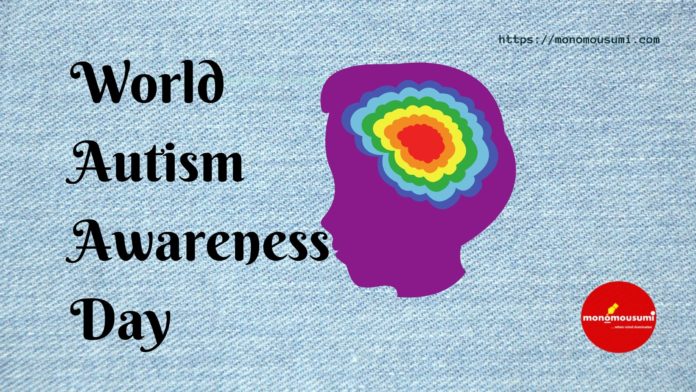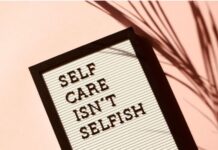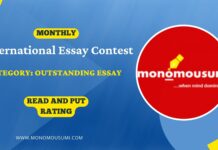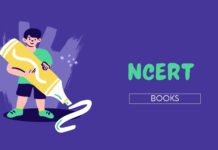The 2nd of April was declared, “World Autism Awareness day,” by the United Nations General Assembly. Autistic people refer to it as World Autism Acceptance day. Unlike the name given by the UN, it is more than just letting people know about Autism. Apart from spreading awareness, April 2 is a day to promote acceptance of autistic people. It is a day when one must understand, include, and learn to support them.
Autism is a neurological difference. Autistic people have unique ways of learning, expressing and even living. Autism is not inherently harmful. It is only different from the standard ways of life. People with this condition can behave differently, sometimes noticeable and sometimes not. Their language, motor skills, sensory skills, perception and executive functions are likely to get affected. Some people refer to it as a developmental disorder. However, it is not right to call it that. It is just another way of life and no one chooses to live this way. It is not a disease. Autism is the presence of a neurotype that is different, not abnormal. It is called abnormal only because the world decided to call one neurotype, “normal.” Most of these statements come from doctors who are allistic (non-autistic). This questions what awareness really is and where it should come from.
Doctors might be right in terms of diagnosing and managing individuals. But it is difficult for them to use the right language, especially if they never lived a day of their lives facing it. This arises the question about how much activism should come from them. Autism Acceptance day is the time when the public voices their support, educates others, shares resources. Out of all these voices, there are two most important ones: the ones of autistic persons and the ones of professionals specialised in it. The former focuses on experiences. They talk about how it feels to be neurodivergent in a world not designed for them. They know about their lives and conditions better than anyone else. They know the ways to support them and the coping strategies. They may not be qualified but no one needs an instruction manual for something they have always lived with. The latter ideally should focus on letting people know the possible signs to look for, what the person yet to be diagnosed can do before getting access to help, share resources for getting help etc. They must be working on the medical aspect. The problem arises when they feel entitled to write/speak about autistic lives just because they have studied about their condition. Doctors only know the condition, not the people. They use harmful words unintentionally and get away with it. No one questions them because they are the experts.
What’s more concerning is that the content about autism that reaches a wider audience is neither by autistic people nor by professionals. It is by celebrities, and influencers who neither have knowledge about the neurotype nor a clue about the experiences. On April 30, 2021, Youtuber Mark Rober and Jimmy Kimmel partnered with NEXT for AUTISM to host a fundraiser “Color the Spectrum.” The money was donated to the “Center for Autism and the Developing Brain” by NFA, that funds research to “prevent” autism. It promotes Applied Behaviour Analysis. ABA is abusive and tries to get rid of autistic traits without acknowledging that these traits are mainly for self-regulation and do not hurt anyone. It violates autonomy. NEXT believes that one can find a cure for autism, as if it is a disease. They want to prevent an entire type of people from existing. None of the members on board were known to have autism. Mark Rober, who has an autistic son made a video, “The Truth about My Son” ahead of the fundraiser. His intentions might be pure, but he used harmful words like, “special needs,” “severe autism,” and “normal functioning.” Autism is a life-long condition, not a disorder. Events like these reach a greater number of audience than what actually autistic people talk about. Majority of the public end up believing in these harmful notions.
The Autistic community goes unheard even on their day. They get talked over by the people who pretend to know better. They are overlooked because everyone thinks that they are never good enough. They are infantilized and dehumanised. It is similar to making a biopic on a person who is alive, without consulting them. Writing a script based entirely on what people think of that person and the stereotypes associated produces a false story. Yet, this is exactly what all the self-proclaimed activists have been doing to the Autistic Community. The consumers of the information might trust the allistic voices more because they feel they are only the “sane ones.” They only trust the words by doctors because they feel they are the only “experts.” They end up butchering autistic experiences.
Everyone makes everything blue as a way to show support, while absolutely not providing any support. They claim to be an ally but do nothing. No changes in policies are made to accommodate autistic employees and workers. Many autistic graduates are unemployed just because they could not cope with the work environment. All that the allistic people do is hand out blue ribbons in certain countries. Also, the blue colour was designated to them by a group Autistic Speaks. Many autistic people view it as a hate group. Instead of blue, people must use the rainbow infinity symbol. Things like these can provide significance to the community rather than the ones claiming to work for it.
Autism Acceptance Day can be confusing for anyone that is new to it. Navigating to the right sources is crucial on this day. It all starts with accepting that disability would not be a problem if the systems were designed for diverse people. It starts with accepting that allistic people being greater in number does not mean they are the only normal ones.
By Shravani Ulluri, Pune
















